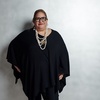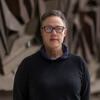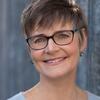
Committee Members
Harvard
Michael J. Hiscox - Committee Chair
Michael J. Hiscox is Professor in the Department of Government. He grew up in Tamworth, a small town in the north-west of New South Wales. He received his B. Econ. (First Class Hon.) from the University of Sydney in 1989 and his Ph.D in Government from Harvard University in 1997. He was Assistant Professor of Political Science at the University of California, San Diego, from 1997 to 2001. From 2001 until 2005 he was the John L. Loeb Associate Professor of the Social Sciences at Harvard. The focus of his research is political economy and international trade, investment, and immigration. His first book, International Trade and Political Conflict, was published by Princeton University Press in 2002 and won the William H. Riker Prize for the best book in political economy that year. His second book, High Stakes: The Political Economy of U.S, Trade Sanctions, 1950-2000, will be published this year by Cambridge University Press.
David Armitage
David Armitage is the Lloyd C. Blankfein Professor of History at Harvard University and an Honorary Professor of History in the School of Philosophical and Historical Inquiry at the University of Sydney. Born in Britain, he was educated at Cambridge University and Princeton University and taught for eleven years at Columbia University before moving to Harvard in 2004. He is the author or editor of thirteen books, including The Ideological Origins of the British Empire (2000), The Declaration of Independence: A Global History (2007), and Foundations of Modern International Thought (2013). He recently co-edited Pacific Histories: Ocean, Land, People (2013) with Alison Bashford, a former holder of the Australian Studies Chair, and he is now working on two books: a history of ideas of civil war from Rome to the present and an argument for the return of the longue durée in historical writing. A frequent visitor to Australia, he has held visiting positions at the Australian National University and the University of Sydney and is an Honorary Fellow of the Australian Academy of the Humanities.
Joyce E. Chaplin
Joyce E. Chaplin is the James Duncan Phillips Professor of Early American History, with major research interests in environmental history, the history of science, and intellectual history. Her numerous trips to Australia have included a visiting position at the University of Sydney and research for her most recent book, Round about the Earth: Circumnavigation from Magellan to Orbit (2012). She is presently working on two projects: T. R. Malthus and extra-European populations, and the idea of nature in history.
Philip Deloria
Philip J. Deloria is Professor of History at Harvard University, where his research and teaching focus on the social, cultural and political histories of the relations among American Indian peoples and the United States, as well as the comparative and connective histories of indigenous peoples in a global context.
His first book, Playing Indian (1998), traced the tradition of white “Indian play” from the Boston Tea Party to the New Age movement, while his 2004 book Indians in Unexpected Places examined the ideologies surrounding Indian people in the early twentieth century and the ways Native Americans challenged them through sports, travel, automobility, and film and musical performance. He is the co-editor of The Blackwell Companion to American Indian History (with Neal Salisbury) and C.G. Jung and the Sioux Traditions by Vine Deloria (with Jerome Bernstein). His most recent book, co-authored with Alexander Olson is American Studies: A User’s Guide (2017), which offers a comprehensive treatment of the historiography and methodology of the field of American Studies. He is currently completing a project on American Indian visual arts of the mid-twentieth century, and coediting (with Beth Piatote) I Heart Nixon: Essays on the Indigenous Everyday.
Deloria received the Ph.D. in American Studies from Yale University in 1994, taught for six years at the University of Colorado, and then at the University of Michigan from 2001 to 2017, before joining the faculty at Harvard in January 2018. At Michigan, he served as the Associate Dean for Undergraduate Education, Director of the Program in American Culture, and of the Native American Studies Program, and held the Carroll Smith-Rosenberg Collegiate Chair. His courses have included American Indian history, Environmental history, the American West, and American Studies methods, as well as Food Studies, Songwriting, and Big History.
Deloria is a trustee of the Smithsonian Institution’s National Museum of the American Indian, where he chairs the Repatriation Committee. He is former president of the American Studies Association, an elected member of the American Academy of Arts and Sciences, and the recipient of numerous prizes and recognitions. Along with Erika Doss, he is the series editor of CultureAmerica, a University Press of Kansas series focused on American cultural history. He maintains ongoing academic engagements with scholars in Taiwan and Australia.
Mark Elliott
As Vice Provost, Elliott oversees and works to advance international academic initiatives, extending the global reach of Harvard’s research and teaching activities. In this capacity, Elliott serves as the University’s representative in negotiating agreements with foreign governments, receiving senior-level international delegations, and representing Harvard to peer institutions and alumni worldwide. In addition, he shares responsibility for supporting the community of international students, scholars, and faculty in Cambridge and Boston, as well as for guiding Harvard’s overall global strategy and sustaining its ongoing development as a global university.
Elliott is an authority on the last four centuries of Chinese history, in particular the Qing period (1636-1911). His research encompasses the history of relations between China and its nomadic frontier, with special attention to questions of ethnicity and empire. His first book, The Manchu Way: The Eight Banners and Ethnic Identity in Late Imperial China, is a pioneering study in the “New Qing History,” an approach emphasizing the imprint of Inner Asian traditions upon China’s last imperial state. He is also the author of Emperor Qianlong: Son of Heaven, Man of the World, and has published more than twenty-five scholarly articles. He serves on numerous editorial boards, and was for three years the director of the Fairbank Center of Chinese Studies.
A graduate of Yale (BA 1981 summa cum laude, MA 1984), Elliott earned his PhD in History at the University of California, Berkeley. He taught at the University of California, Santa Barbara and at the University of Michigan before coming to Harvard in 2003. He can be found on Twitter at @Mark_C_Elliott.
Maria Gough
Maria Gough is Joseph Pulitzer, Jr. Professor of Modern Art at Harvard University. Born and raised in Melbourne, she studied law, philosophy, and the history of art at the University of Melbourne, and then completed her MA and PhD at Johns Hopkins and Harvard, respectively. Before joining the faculty in 2009, she taught at the University of Michigan (1996-2003) and Stanford University (2003-2009). Her primary area of research and teaching is European Modernism, with a particular emphasis on the Russian and Soviet avant-gardes. Tackling problems in the history of abstraction, drawing, photography, print media, propaganda, para-architecture, exhibition design, and museology, her research has appeared in October, New German Critique, Modernism/modernity, RES: Journal of Anthropology and Aesthetics, Parkett, Artforum, and the Cahiers du Musée national d'art moderne. Her book on the Constructivist debates of the 1920s, The Artist as Producer: Russian Constructivism in Revolution, was published by the University of California Press in 2005. She is currently writing a book on the intermedia projects of El Lissitzky and Gustavs Klucis, and another on the photographic practices of foreign visitors to the Soviet Union in the early 1930s.
David Haig
Arthur Kleinman
Kleinman is professor of medical anthropology in the Department of Global Health and Social Medicine and professor of psychiatry at Harvard Medical School. He is the Esther and Sidney Rabb professor of anthropology in the Department of Anthropology in the Faculty of Arts and Sciences (FAS), and was the Victor and William Fung director of Harvard University’s Asia Center 2008 - 2016. He is a member of the National Academy of Medicine and the American Academy of Arts and Sciences.
Arthur Kleinman has published six single authored books including Patients and Healers in the Context of Culture; Social Origins of Distress and Disease: Depression, Neurasthenia and Pain in Modern China; Rethinking Psychiatry; The Illness Narratives; Writing at the Margin; and What Really Matters. His four co-authored books include Reimagining Global Health; A Passion for Society: How We Think about Human Suffering; and Deep China: The Moral Life of the Person. He has also co-edited books on culture and depression; SARS in China; world mental health; suicide; placebos; AIDS in China; and the relationship of anthropology to philosophy (The Ground Between: Anthropologists Engage Philosophy).
Julia Rhyder
Australia
Alison Bashford - Committee Chair
Historian and writer, Alison Bashford is the Vere Harmsworth Professor of Imperial and Naval History at the University of Cambridge, and Fellow of Jesus College, Cambridge. Her books bring together the history of science, global history, and environmental history into new assessments of the modern world, from the eighteenth to the twentieth centuries. Her most recent book is The New Worlds of Thomas Robert Malthus, coauthored with Joyce E. Chaplin, and published with Princeton University Press (2016).
Born in Sydney in 1963, Alison Bashford was educated at the University of Sydney, where she was awarded the University Medal in 1990. For nearly twenty years she taught and researched from her Sydney base, taking regular visiting fellowships in the United Kingdom. In 2009 she was the Whitlam and Fraser Chair of Australian Studies at Harvard University. In 2013 Alison Bashford joined the University of Cambridge as Vere Harmsworth Professor of Imperial and Naval History, succeeding Professor Sir Christopher Bayly.
Alison Bashford is Trustee of Royal Museums Greenwich. She is fellow of the Royal Historical Society and of the Australian Academy of Humanities. Bashford sits on the Advisory Board of the Menzies Centre of Australian Studies, King’s College London and the Harvard Australian Studies Committee. With David Armitage and Sujit Sivasundaram she is founding co-editor of the series Cambridge Oceanic Histories.
Heather Douglas
Emma Kowal
Emma Kowal is the Alfred Deakin Professor and ARC Future Fellow at Deakin University. She is a cultural and medical anthropologist. Her previous work as a medical doctor and public health researcher in Indigenous health settings in Australia have led her to pursue two intersecting lines of theory and empirical research: (1) Australian racial politics: Indigeneity and Whiteness, settler colonialism and postcolonialism, racism and anti-racism, and (2) Science and technology studies: the anthropology of biomedical research, genomics, bioethics, and public health.
Her current areas of interest include:
- Australian racial politics, especially Indigeneity and Whiteness
- Settler colonialism and postcolonialism, racism and anti-racism
- Science and technology studies
- Applications of genomics and epigenomics with First Nations groups
- Bioethics, biopolitics and public health
Philip Mead
Philip Mead has been the inaugural Chair of Australian Literature and Director of the Westerly Centre. He taught units in Australian Literary Studies, at Honours level, and the English units in the Master of Curriculum Studies (English) course, a collaborative course between the Faculty of Arts and the Faculty of Education. He has also taught a MOOC, 'Australian literature: a rough guide' for the Coursera platform.
Philip’s research is at the intersections of national and transnational literary studies, cultural history and theory, poetics, literary education, literary regionalism, and digital humanities. He has led nationally competitive research and teaching grants, most recently the ALTC funded project, ‘Australian Literature Teaching Survey’ (2009), the ARC Discovery Project grant for 2010-2012, ‘Monumental Shakespeares: an investigation of transcultural commemoration in 20th-century Australia and England' (with Gordon McMullan, King's College London), and the OLT funded Extension project ‘Update and Expansion of the AustLit Resource Teaching with AustLit site’ (2013-2014). He is also CI on the ARC Discovery Project grant for 2016-19, 'Investigating literary knowledge in the education of English teachers' (with Larissa McLean Davies and Lyn Yates, University of Melbourne, Brenton Doecke, Deakin University, and Wayne Sawyer, Western Sydney University). He is on the board of management of the ARC LIEF funded AustLIt consortium.
Lynette Russell
One thing Lynette enjoys most about her position is her engagement with other disciplines - she has co-authored with Monash archaeologist Professor Ian J McNiven - and she is eager to help facilitate interdisciplinary opportunities for her graduate students as well.
'As a historian, and anthropological historian, I like working with the archaeologists. I think it's great for students to be able to bounce ideas off two different schools of thought. That works really well for me.'
She also takes her engagement with other communities and cultures very seriously.
'One of those things in the area we work in is that you have to remind yourself that it's an absolute privilege to work on, and with, indigenous groups and artefacts. It's really important that you actually take it with a high standard of personal ethics. That includes engaging with the communities that are appropriate, talking to the appropriate people - just being a decent human being.'
Lynette is a strong believer in the importance of Indigenous studies as part of the curriculum.
'I'm very keen to see as many students as possible undertake Aboriginal studies units. Frankly, I think such subjects should be essential for every undergraduate, particularly arts graduates. People need to understand what it means to be living in a continent that had over 600 different tribal groups and 250 different languages.'
One of her most challenging projects has been attempting to learn one of those languages herself.
'It's important to me, but frankly, it's really, really hard to learn an Aboriginal language. My tongue does not seem to want to do what I want it to do. It dances in the wrong places, and it trips. So I would love to learn an Aboriginal language, but I think I'm going to have to content myself with maybe two sentences.'
Lynette held an Australian Research Council Professorial fellowship between 2011-2016. She is an ARC Laureate Professor (2020-2025).
Michael Young
A specialist in water policy reform, Mike has developed proposals for the transformation of water rights in the western USA and for the introduction of groundwater sharing systems in California.
As a result of an Australian Government endowment, each year Harvard University appoints one person to the Whitlam and Malcolm Fraser Chair in Australian Studies at Harvard University. Mike held this Chair during the 2013/14 academic year. While in this position, he taught a course on transformational policy reform and, with Christine Esau edited an Earthscan iting a book on the same subject.
In the past, Mike has led teams that have developed frameworks for the introduction of a greenhouse gas emissions trading system in Australia; fishery management in NSW; biodiversity conservation on private land; and for rangeland management in NSW, SA and the NT. For three years, he worked on the integration of agricultural and environmental policies with OECD. He also played a key role in establishing Australia’s National Land and Water Resources Audit.
Mike is a current member of the Global Water Partnership's Technical Committee and is a recent member of the World Economic Forum’s Global Agenda Council on Water Security. In 2010/11 he lead the water component of a UNEP study on opportunities to pursue green growth strategies throughout the world. He was a founding member of the Wentworth Group of Concerned Scientists.
In 2006, Mike was awarded Australia’s premier water research prize – the Land and Water Australia Eureka Award for Water Research. The award recognizes the significant contribution of his research with the late Jim McColl to the development of improved water entitlement, allocation and trading systems in Australia.
Mike is best known for his contribution to the development of natural resource and environmental policies. In recent times, his research has focused on the use and design of market-based instruments with attention to water. He has played a critical role in the consideration of options for the Murray Darling Basin. Internationally, he is known for his capacity to integrate biophysical and economic information to produce innovative policy proposals that catalyze change.
Prof Young is a Research Fellow with Duke University's Nicholas Institute for Environmental Policy Solutions and an Honorary Professor with the University College London. In 2012 spent several months in the United Kingdom working on water policy options for the Department of Environment, Food and Regional Affairs. This included consideration of ways to significantly reform water abstraction licensing and pricing arrangements.
In 2013, he spent several months with the OECD’s Environment Directorate working on a draft framework for the design of water abstraction regimes and options for the management of water scarcity challenges in the Netherlands.
Prior to joining the University of Adelaide, Mike spent 30 years with CSIRO where amongst other things he established their Policy and Economic Research Unit with offices in Adelaide, Canberra and Perth.
In 2003, Mike was awarded a Centenary Medal “for outstanding service through environmental economics”. In 2009, he was named South Australian of the Year in the Environment Category.
Examples of policy proposals that have been adopted by government and resulting directly from research that he has led include
- The total reform of water pastoral land leasing arrangements in Australia’s Northern Territory, South Australia and New South Wales;
- The reform of kangaroo harvesting licensing arrangements in New South Wales;
- The conversion of fishery licenses into shares in New South Wales;
- The shift in the focus of biodiversity protection policies in Australia to ones that involve the provision of incentives for the conservation of biodiversity on private land;
- The unbundling of Australia’s water licences and the resultant development of an efficient trading system;
- The Australian Government decision to transfer responsibility for the administration of the Murray Darling Basin’s water resources to an independent expertise-based authority.
His full curriculum vitae lists over 240 publications. He has been Associate Editor of Ecological Economics and is a member of twelve editorial boards. He holds degrees in economics and agricultural science.
More information is available at >www.myoung.net.au




